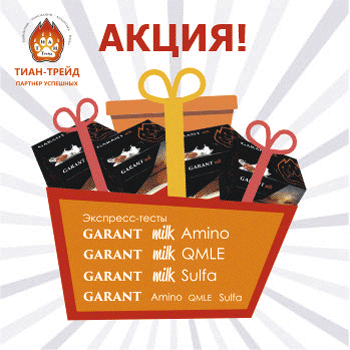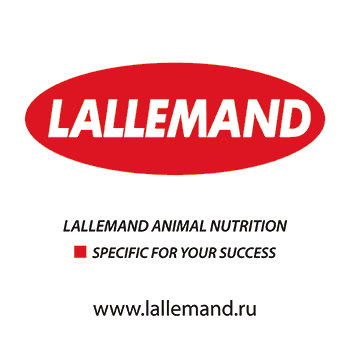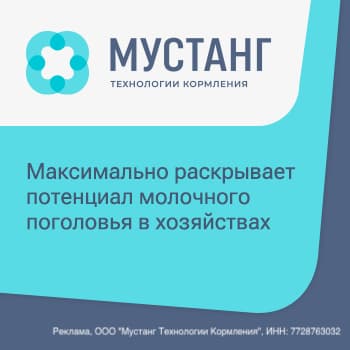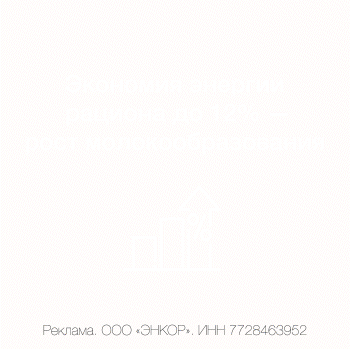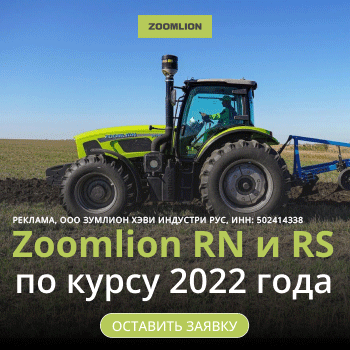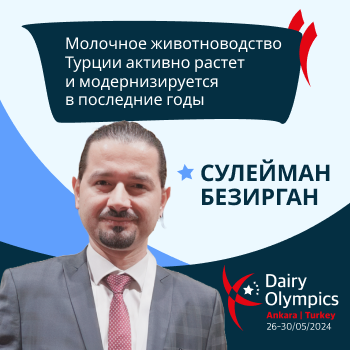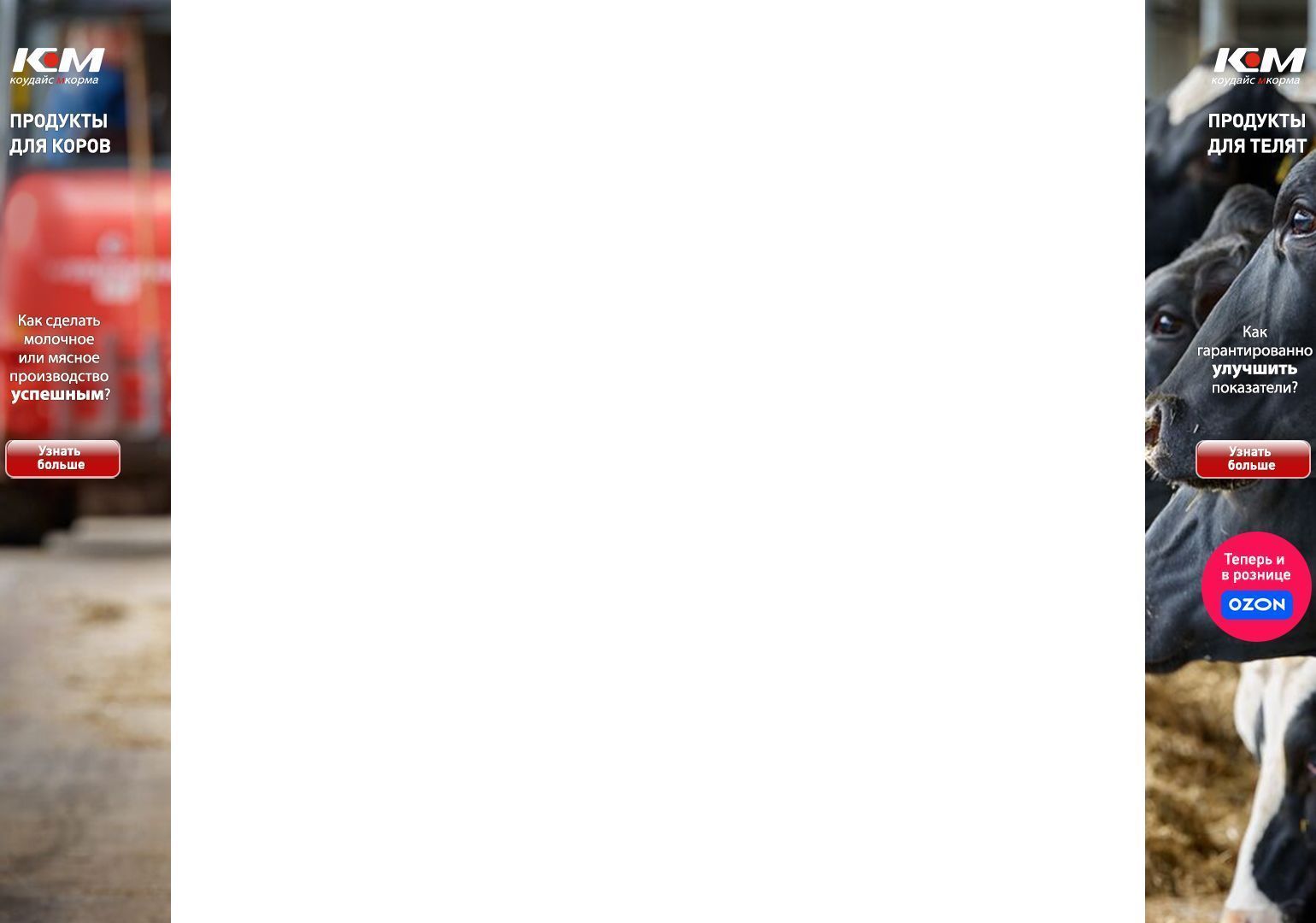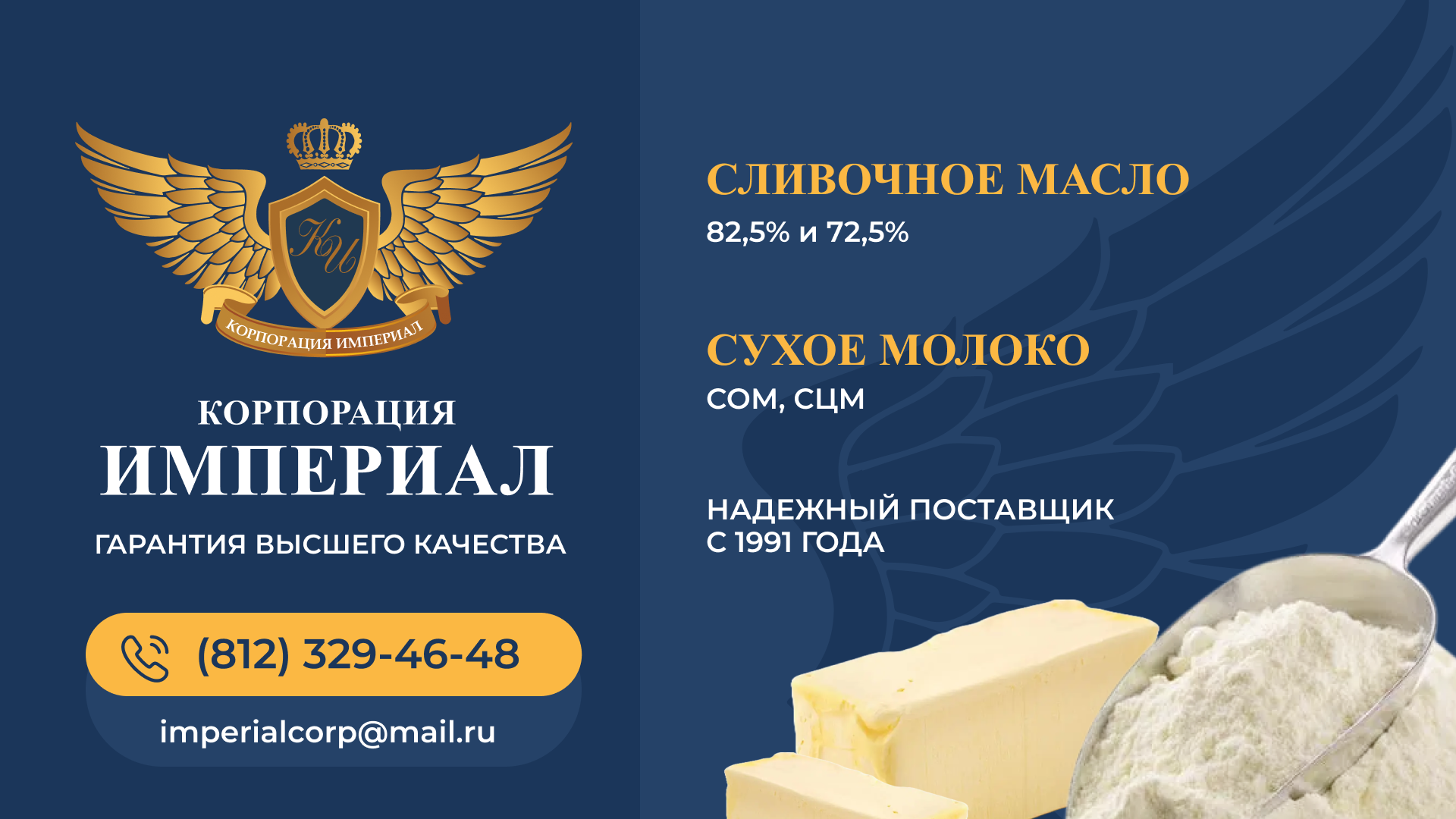Milk reconciliation
Dairy Belarus
Belarus is a country with self-sufficient production of agricultural products. According to the Belarusian national statistical committee, the country has a positive dynamics of livestock production. In 2017 the production of livestock and poultry in slaughter weight exceeded the volumes of 2010 by 24.4%, milk production – by 10.5%, egg production – by 0.6%.
Belarus ranks fifth in terms of per capita production of grain (842 kg) and vegetables (206 kg).
In 2016, the country produced about 750 kg of milk per capita – with this figure among others, Belarus is leading among the CIS countries, being ahead of Kazakhstan, Armenia, Ukraine and Russia. At the same time, 90% of all milk produced is exported to Russia. For comparison, per capita production in Russia in 2016 was only 117.6 kg.
According to the Ministry of agriculture of the Russian Federation, Belarus supplied 2.72 million tons of milk and dairy products to Russia during the first half of 2018.
Roots of contradiction
Turbulence in economic relations between the two countries showed itself in 2006 - it became known that behind the Belarusian sugar imported to Russia, its cane analog from Latin America was hidden. This was followed by oil contradictions, followed by dairy: Gennady Onishchenko, chief sanitary doctor of Russia said in 2009 about the need to ban the import of a number of dairy products to the country – according to him, Belarusian products were produced with violations of the requirements of the relevant technical regulations.
Earlier Belarus was accused of dishonesty by Sergey Dankvert. According to RBC, the public conflict between the Belarusian President and the Head of the Rosselkhoznadzor Sergey Dankvert began at the end of 2016. In an interview to RBC, the Russian official said that Belarusian suppliers of products, the quality of which the Agency of Dankvert was regularly called into questions, behave "dishonestly" and "wanted to take advantage of the situation when the Russian market was closed for supplies from the EU and from Ukraine."
In response, Alexander Lukashenko said that the Rosselkhoznadzor was causing damage to Belarus, preventing the import of Belarusian food products to Russia, and the Rosselkhoznadzor reflected this situation by stopping the supply of beef and beef by-products from Minsk region.
In February this year, the Rosselkhoznadzor introduced new restrictions on the products of Belarusian producers due to the detection of harmful and prohibited substances in them. Milk and cream powder turned out to be banned. The Belarusian party did not agree with the accusation.
About balances
On September 18, the Minister of agriculture of Russia Dmitry Patrushev held talks with the Minister of agriculture and food of the Republic of Belarus Leonid Zayats.
According to the Ministry of agriculture, during the meeting the Minister stressed that Belarus is currently the most important trade partner of our country and the largest supplier to the Russian market in a number of areas.
In November 2018, the Ministry of Agriculture of the Russian Federation and Belarus agreed to sign the forecast balances of the Union state for 2019 on milk and dairy products, meat and meat products. According to the source of the publication, the balances on milk have already been agreed. During the fifth forum of the regions of Belarus and Russia, which was held on October 10-12 in Mogilev, the parties signed balances of mutual food supplies for 2019 for $3 billion.
According to the Ministry of agriculture of the Russian Federation, in January-July 2018 the trade turnover between the countries increased by 2.7% to $2.9 billion. At the same time, Russian exports during the reporting period increased by 20.5% to $0.7 billion.
– For the first time we have signed balances for the coming 2019 in advance. Balances of the next year are built monthly, they will be executed. They differ from the level of 2018, according to different nomenclature in different ways. But in general - a little less - said Dmitry Patrushev.
Opinions
At the same time the Rosselkhoznadzor opened the market for a number of dairy companies. It is assumed that the signing of the balances will contribute to the reduction of supplies of raw milk from Belarus, and the import of finished dairy products to Russia will increase. We asked some experts.
– We are still disentangling the results of the situation when Russian producers once again found themselves under pressure due to lower purchase prices for raw milk without any reason. For 11 months, milk producers of the Russian Federation are forced to ship milk at unprofitable prices and only now purchase prices began to recover very slowly. And all this happened only because a huge amount of milk powder and butter was imported to our country through Belarus at dumping prices. Processors purchased it, created reserves and reduced the purchase price. If we ensure stability in the country within 2-3 years, create production facilities, the dairy industry will become attractive for investment. This is a competent policy – it will relieve social tension: new jobs will be created, wages will be adequate. To this end, the State must ensure strict control over dairy products coming from abroad and maintain the established monthly quotas for imports. Only the missing volumes can be supplied from Belarus and at prices not lower than the production cost in our country. At the same time, it is necessary to use the developed methodology for determining milk powder in finished natural products more widely and to monitor the quality of those products that are imported from abroad, to exclude completely the import of falsifications and surrogates.
The Russian market is strategically important for Belarus. While there is a seasonal shortage of milk in Russia in autumn and winter, our Belarusian colleagues can increase shipments of their products, but this should be done very carefully without breaking the existing market. We have been saying for a long time that our shelves are open for high-quality finished products from Belarus, but we must be very careful with milk powder, butter and cheese. It is necessary to strictly observe the balance of both tonnage and supply, taking into account the seasons - Airat Khairullin, Deputy Chairman of the State Duma Committee on agricultural issues
- Products from Belarus on the shelves give the domestic manufacturer an incentive to compete. But in fact, the conditions are not quite equal, in Belarus raw milk is much cheaper than in Central Russia, so the artificial advantage is not on our side. Moreover, there are still too many falsified products. Despite the gradual reduction in the presence of such products on the shelves, the degree of severity of the problem is not reduced. Dairy market needs differentiation in the structure of the dairy and non-dairy products. Such a measure would greatly facilitate the lives of processors. The composition of the market in terms of the players is quite diverse; it would be better to have the dominated number of regular players. Phantoms that appear and disappear complicate the activities of enterprises that seek transparency, – said the market participant, who wished to remain anonymous.
- Belarus is a source of exchange products, but not always of high quality: a lot of falsified goods produced in Ukraine are imported. This factor affects the reduction in the purchase price of milk. In addition, the control over raw materials is higher, and it is much easier to miss "fraud" in the finished product – we are talking about malicious falsification, that is, not just replacing milk fat with non-dairy components within 50%, but adding harmful substances to the composition. Such products flow through Belarus, despite the closure of borders and detection of violations. The balances might be taken into account only by the Belarusian party; we do not have our own clear statistics. It is impossible to establish the exact volume of imported products, – Alexander Nikitin, member of the Board of Directors of the company “Aantal”
- I have a positive attitude to signing balances. It is profitable for us to deliver not only raw materials but finished products. All processed raw materials that we have, loads our own capacity, there is the place where we can sell the excess of raw materials in the form of milk powder, whey - the markets of Southeast Asia, the Persian Gulf. In this direction we ship a lot and plan to increase volumes. This approach is laid down in the trade balances; it is a coordinated policy without objections on our part and on the part of the Russian Federation – Alexey Bogdanov, Head of the Department of foreign trade of the Ministry of agriculture and food of the Republic of Belarus
– We are against double standards and for market mechanisms of regulation. Either Russia and Belarus have open borders for raw milk and finished products, or both are strictly controlled. Reducing the supply of raw milk and increasing the supply of finished products further complicates the lives of processors, especially in our region, where there is a shortage of raw milk. By limiting the import of raw milk to Russia, we create an excess of such raw materials in Belarus, making Belarusian dairy products even more competitive compared to Russian ones – Dmitry Pinchukov, Chairman of the group of companies “Galaktika”.
As the experience of any regulation shows it is important to have clear rules. Analysts emphasize that the dairy industry of the Russian Federation should not see only external enemies, at the same time the correct adjustment of food balances of the Union state contributes to a softer situation of the market.

